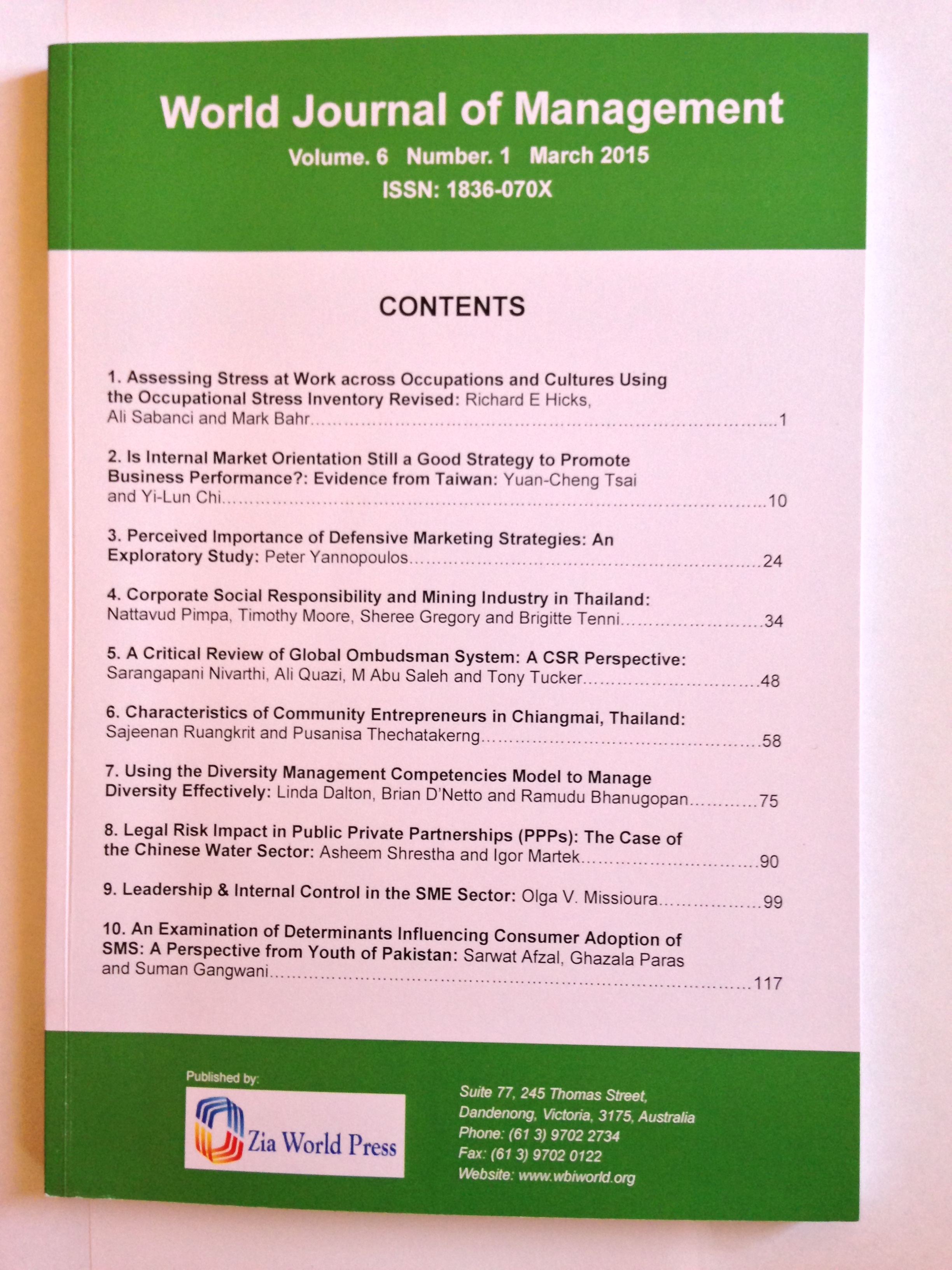Pages
1– 16
Author: Nazrul Islam, Sharmina Afrin, Shahriar Kabir Alif, Rashik Hassan, Md. Mohianal Islam, Rahman Ershad Kayani and Md. Moin Khan
The economic development of a developing country like Bangladesh depends on the development of entrepreneurship that again depends on the entrepreneurial intensions of the university graduates. But the intensions of the graduates are outlawed by a number of factors which are external and internal in nature. Therefore, this study aims at identifying the factors that prevent or discourage the university graduates of Bangladesh to initiate new business. To conduct the study, 210 recent business graduates were chosen and interviewed from eleven universities - five government universities and six private universities of Bangladesh. All the respondent interviewees were the recent business graduates. A structured questionnaire with five points Likert scale was used to collect primary data from the respondent graduates. Both descriptive and inferential statistics were used to analyze the data. Descriptive statistics were used to describe the present situation of the entrepreneurship development in Bangladesh. Inferential statistics like factor analysis and multiple regression analysis were used to identify the relationships between the overall entrepreneurship development and the specific factor(s) that prohibit university graduates to be entrepreneurial in Bangladesh. The study found that the lack of confidence and calmness in confronting difficulties, lack of aspiration to be a successful boss, lack of favorable environment for entrepreneurial activities, lack of encouragement and learning on entrepreneurship, and lack of capital and business knowledge are significant prohibiting factors for the business graduates to be entrepreneurial in Bangladesh. This study suggests that the policymakers should focus more on entrepreneurship learning at the university level, availability of capital, and creation of favorable business environment for the development of entrepreneurship in Bangladesh.
Pages
28– 40
Author: Surajit Sarbabidya
Being an important sector of Bangladesh Real estate industry is going through intensified competition among the market players with the mixture of favorable issues and unfavorable challenges. To cope with such situation, an integrated system of supply chain management has become a necessity for the balanced growth and development of the REI of Bangladesh. Though the earlier research studies found a very significant role of maintaining effective supply chain for the growth of the REI, many of these studies focused only on one or few of the dimensions of the subject matter. To fill out such knowledge gap left out by the previous studies, the present study aims to examine the issues which can ensure effective supply chain management for the real estate industry of Bangladesh. The current study is the result of primary and secondary data collection and their analysis which indicate a good number of facilitating issues or factors including integrated linkage of backward and forward suppliers, outsourcing or sub-contracting for cost effectiveness, land for development, high quality and eco-friendly building materials and products, utilities, renewable energies and the likes.

